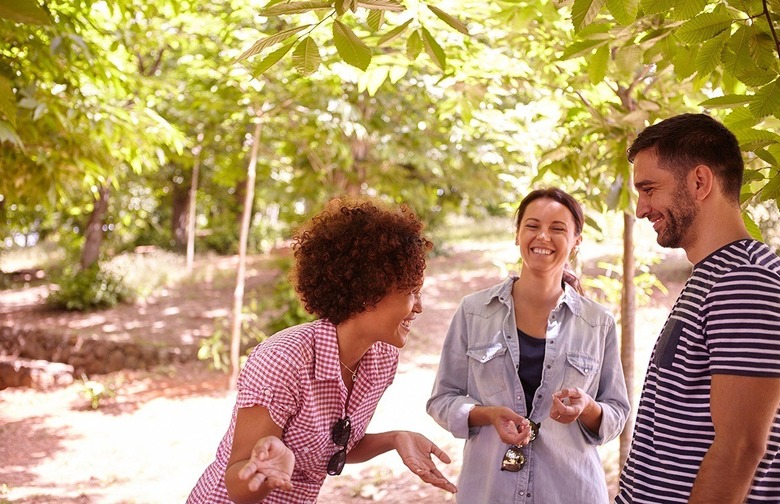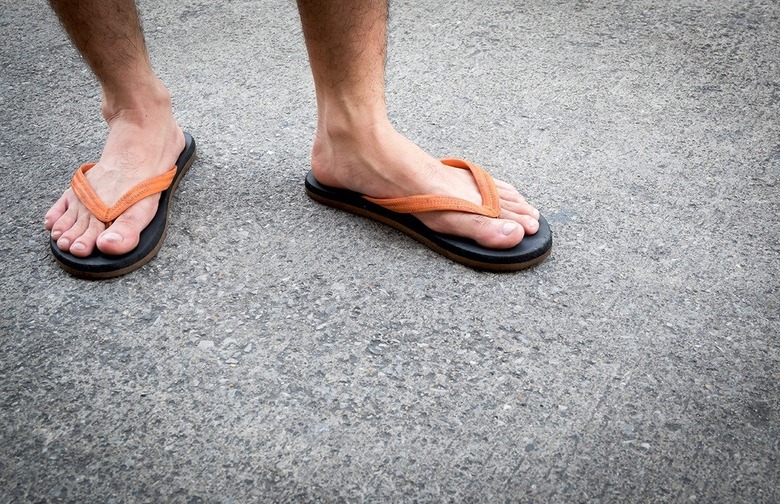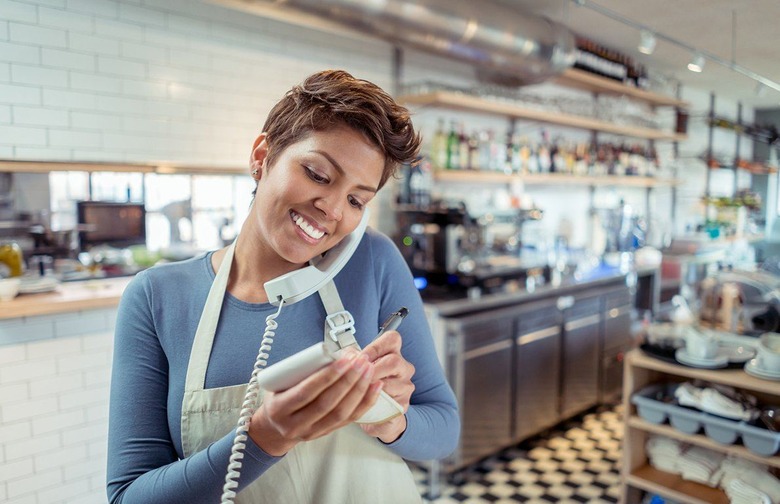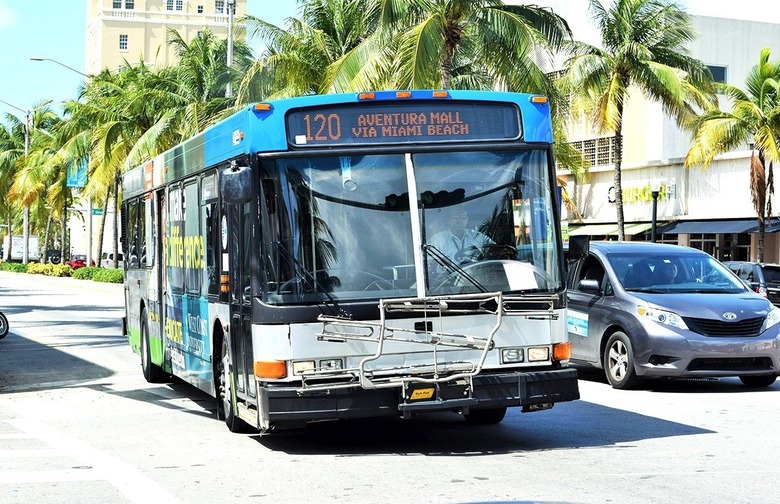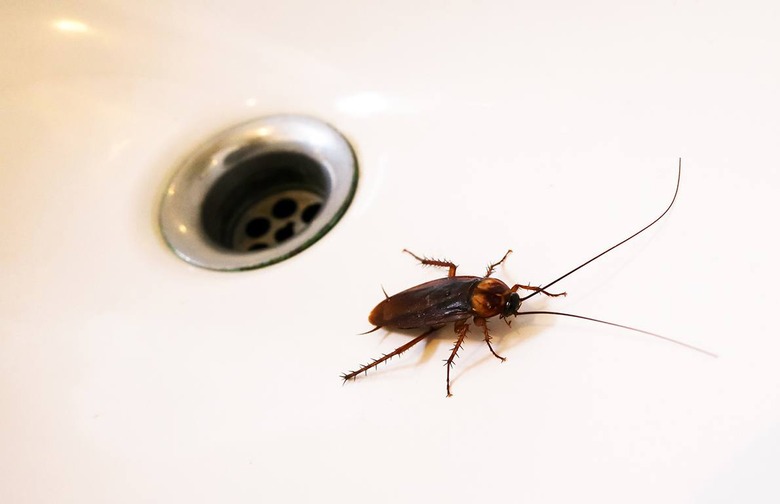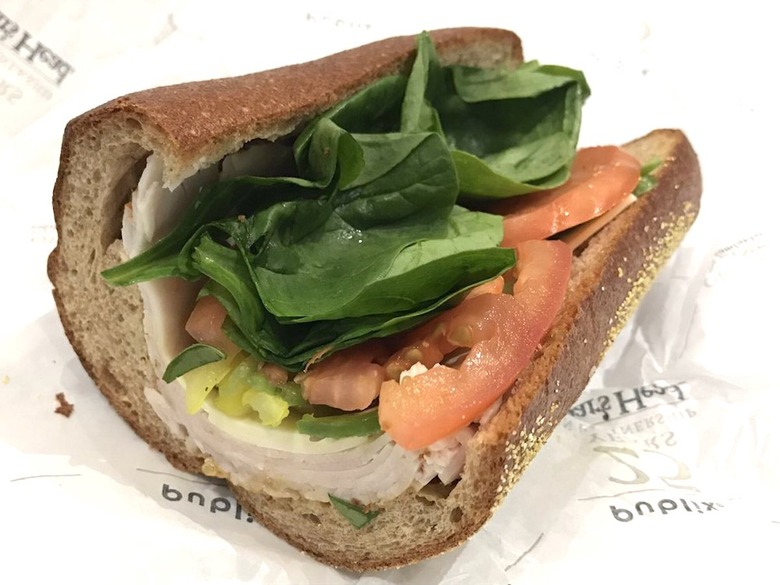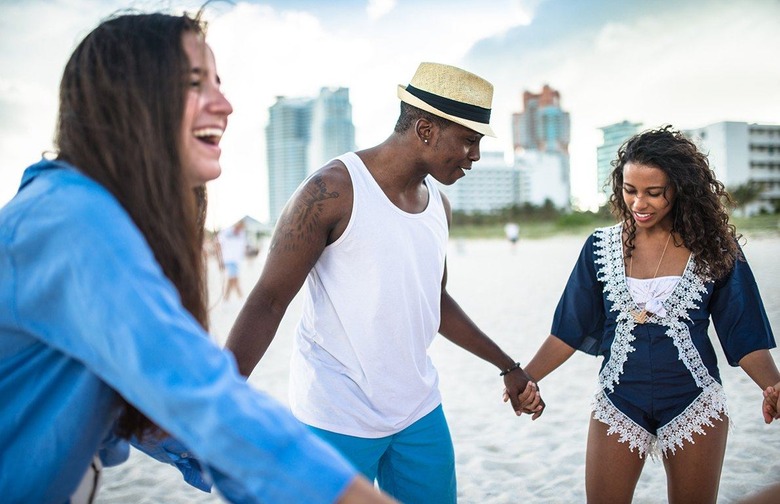Slideshow: 25 Things Only People From Miami Say
Now, we recently shared things only people from Florida say, and although those phrases are common to the entire state, there are plenty more that are unique to the Spanglish-speaking community of Miami. If you've lived in the 305 (the area code Miamians take much pride in) you'll know what to do when your mom says "Mamita, get down and get a pub-sub please" or what it means to hear the latest "chisme about the pata sucia at last week's getty."
A Mission
When something is "a mission" it means you have to go somewhere far, have a lot to do, or the task is going to be difficult and long. For instance you might hear it used in a sentence such as: "I have to bust a mission to Hialeah to get my windows tinted and then head to Costco."
Bro
Sure, people everywhere use the term "bro" but it's unlikely that anyone uses it as often as Miamians. The word is used for absolutely anything — excitement, disappointment, to call someone, to enhance a story — anything.
Chancletas
If you've ever lived in Miami you know what a chancleta is. For those not from Miami, chancleta is the Spanish word for a sandal or flip-flop. (Flip-flops, of course, are considered acceptable attire anywhere.) The word can also be used as a threat, but that's another story.
Cheek Kisses / Besos
This one isn't a thing people say, exactly, but it's the way everyone in Miami greets each other. Where you'd shake a stranger's hand in a different state (or even North Florida), in Miami it's all about the cheek kisses. It's a much friendlier greeting and takes the awkwardness out of meeting someone new — although outsiders may think the opposite. Also used in the same context is the word besos, which is usually said on the phone or through text when you can't physically give the cheek kiss to say goodbye.
Chisme
The word chisme means gossip in Spanish and all Miamians are interested in hearing the chisme, though they'll try to tell you they hate the drama.
Chonga
Let's start this one by saying that everyone who was raised in Miami has gone through a chonga phase, or has known a few chongas in their day. So what does it mean? It's usually a Hispanic girl in her late teens who wears tight bottoms with a baggy top, oversized hoop earrings (possibly with her name written through it), and tightly gelled-back hair (or tightly curled hair with so much gel in it that it looks permanently wet).
Dale!
In Miami, Spanish is truly the dominant language. The expression dale is used several ways, and is literally translated to mean "give it," but Miamians use it to say goodbye or to imply that you should go for something. See you tomorrow? ¡Dale! Want to go out tonight? ¡Dale!
Dasit
The slang word dasit is used as the Spanglish abbreviation for "that's it" throughout Miami. Many words that have a th- sound at the beginning of the word are substituted for a d- sound. You'll hear dasit used to end almost any sentence with emphasis, whether it's an order or an argument, dasit.
Dime
The word dime means "tell me" in Spanish, and can be used instead of saying hello. Someone answering a phone call might pick up with a "¿ Dime?" as in "Hey, what's up?"
Getty
A getty is when a group of people get together at someone's house. It can be a large getty or a small one, but it's never big enough to be considered a house party — although sometimes they can turn into one before you know it.
Get Down
You're probably thinking that "get down" means "dance." If so, you're not wrong — but you're not totally right either. Sure, some people may say "I want to get down tonight," but this is uncommon in Miami. In Miami, "get down" is used when you're getting out of the car. Where people elsewhere would just say "get out of the car" Miamians will tell you to "get down from the car."
Guagua (pronounce wawa)
In Spanish, la guagua means the bus. The public transportation in Miami isn't the best, and many people try to avoid it by all means possible, but sometimes it's just too hot to walk, in which case you'll probably have to catch the guagua.
Irregardless
Yes. People in Miami really use this word and many probably don't know it isn't a word to begin with. You can expect this from a melting pot where so many languages are being spoken at any given time that it's hard to tell one language from another and impossible to discern what's real or fake.
Literally
"I'm literally sick of this humidity" is just one example of how "literally" is used in literally every possible way. The old "like" is out and has been replaced with the new and improved "literally." Please control your instinctual desire to respond with an eye roll.
LIV?
If you live in Miami, you might consider LIV... but you're probably not going to LIV, unless you want to wait in line for hours with a bunch of tourists. LIV is a well-known nightclub in the Fountainebleau on South Beach that locals rarely go to, but it's always fun to mention as an option — we all know the party is really in Wynwood... or maybe Brickell.
Mama/Mamita and Papo / Papito
There are variations to each of these words, but mama and mamita are used as endearing terms for ladies, where papo and papito are used for guys. These words apply to anyone and aren't only used for friends and family. For example, if you're next in line for a cafecito (Cuban coffee) and don't realize, the person behind you will likely say "mamita" to get your attention instead of "miss." It is also used in sentences such as "Papo, I love the hair cut" or "What'd you do last night, papito (or mamita)?"
My Guy
First of all, everyone knows everyone in Miami and they all have "a guy." Need your shoes repaired? I have a guy. Need your car windows tinted? My guy in Hialeah can help you out.
Palmetto
There is no denying that palmetto bugs are worse than most cockroaches, and they're also incredibly common in Florida. Palmetto bugs are part of the cockroach family, but not only are they the largest of the species — they can fly! Roaches are gross enough, but giving them wings? That's just evil.
Pata Sucia
The literal translation is "dirty feet," and that's exactly what calling someone a pata sucia is referring to. When a girl takes off her shoes at the club — probably because she's in huge heels and they're killing her feet — but continues dancing, that girl is a pata sucia.
Pub-subs
Publix is Florida's Holy Grail chain of grocery stores, and it is notoriously known for its chicken tender subs. "Pub-subs," as Floridians call them, are made to order at the Publix deli, and no road trip is complete until everyone has picked up their pub-subs.
Super
Super adds emphasis to everything in Miami. Super excited. Super bloated. Super intense. Super hungry. Super over it.
Supposably
Whenever you'd normally use the word "supposedly," insert "supposably" there instead. Although it is actually a word derived from supposable, Miamians are probably the only ones that use it with such frequency, and are supposably using it in the wrong context too.
Tiki Tiki
Loud, obnoxious sounds. It's usually referring to house music but can work for anything that's annoying, like the tiki tiki of typing a text with the volume on or slamming down on your computer keyboard.
Ya Tu Sabes
This phrase holds the same meaning in Spanish and in English. Where people in other places would exclaim "you already know" as an indication of excitement toward something, Miamians add the Latin flair to it and just have to say it in Spanish — ¡Ya tu sabes!
“Yeah, No” and “No, Yeah”
This one is a bad habit Floridians can't seem to shake, but knowing the difference between the two is a major key to understanding Florida's language. It's pretty simple — "yeah, no" means no and "no, yeah" means yes. So basically just ignore whatever people respond with first and listen for their second word choice.
Additional tip: Briefing yourself on DJ Khaled's lingo will help you to understand the locals, too.


